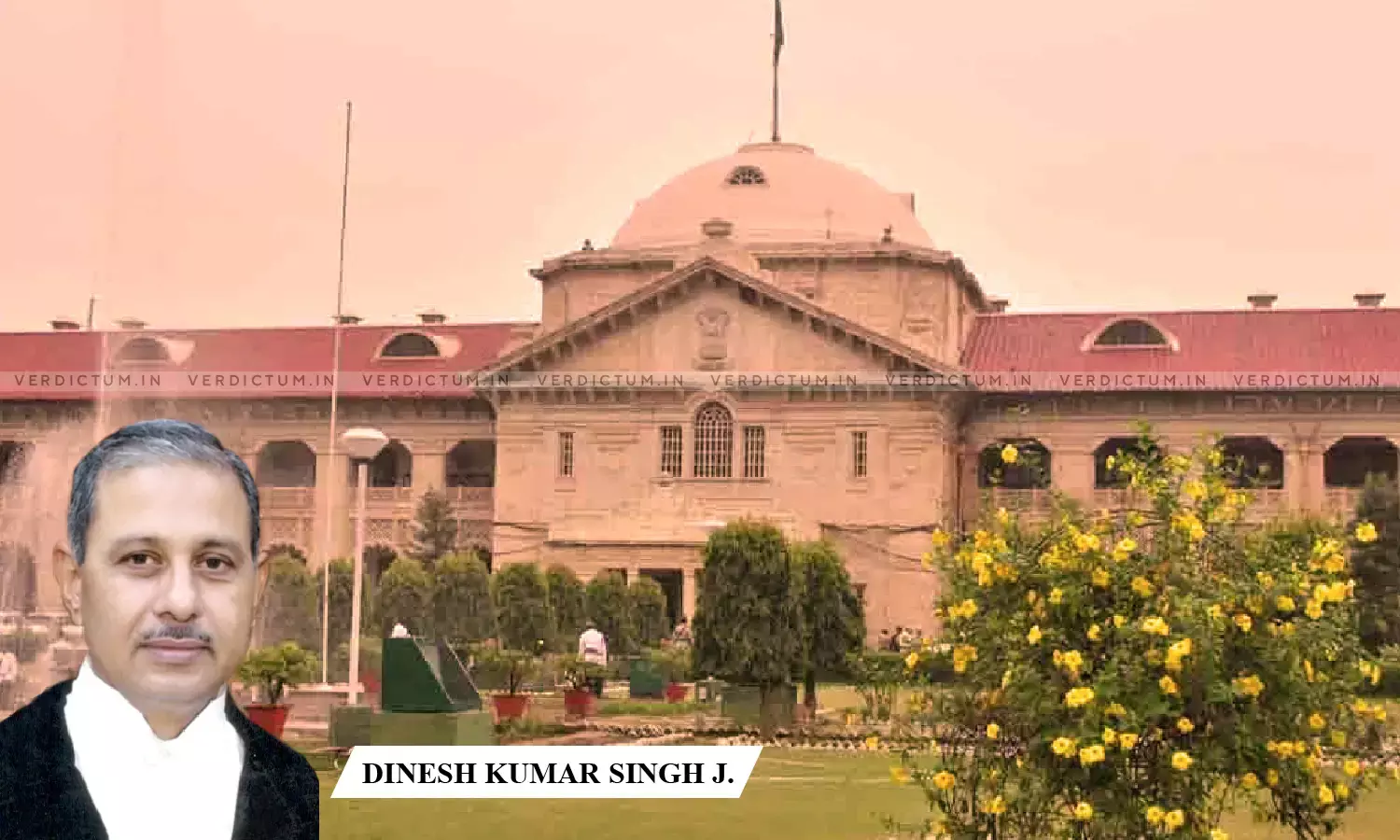PC Act- No Prior Sanction For Prosecuting Public Servant Needed If CBI's Investigation Is As Per Court's Order: Allahabad HC

The Allahabad High Court while rejecting the application filed under Section 482 of the Cr.PC against the Central Bureau of Investigation (CBI) held that no prior sanction under Section 19 of the Prevention of Corruption Act is required for prosecuting a public servant where the investigation of an offence is entrusted to the CBI pursuant to the Constitutional Court's order.
A Single Bench of Justice Dinesh Kumar Singh was dealing with a matter in which the applicant challenged the order passed by the Trial Court taking cognizance of the charge sheet filed by the CBI against him and issued the non-bailable warrants of arrest against him. The Bench stated –
"… I am of the considered view that where the investigation of an offence has been entrusted to the CBI pursuant to the order passed by the Constitutional Court and role of a public servant comes as an accused for committing such an offence, no prior sanction under Section 19 PC Act would be required for prosecuting such a public servant."
The Bench further stated that the relevant date for applicability of law in respect of a crime would be the date of commission of the crime.
The Court also relied upon the case of State of Telangana Vs. Managipet alias Mangipet Sarveshwar Reddy (2019) 19 SCC 87 in which it was held that Amending Act No. 16 of 2018 would not be applicable for an offence which was committed prior to amendment being carried out. The Court in this regard observed that "Whether any offence has been committed or not has to be examined in the light of the provisions of the statute as existed prior to the Amendment carried out on 26.07.2018 in the PC Act."
Advocate Nandit Kumar Srivastava appeared for the applicant while Advocate Anurag Kumar Singh for the respondent i.e., the CBI.
Brief Facts of the Case –
The applicant was a public servant posted as District Development Officer at Balrampur. During the years 2007 to 2009, a large scale of financial bungling, gross irregularities and misappropriation of public funds allocated under the National Rural Employment Guarantee Scheme (hereinafter referred to as the "NREGS") was reported to have been done by the then government officers/officials in criminal conspiracy and connivance with the private suppliers in purchase of stationery and other materials. A prayer was made for registration of the FIR and investigation by the Central Bureau of Investigation (hereinafter referred to as the "CBI"). The applicant was named in the CBI's charge sheet, accusing him of causing loss to the government and corresponding gains to himself. However, the applicant had retired from the service when the charge sheet was filed.
The Trial Court issued a summons to the applicant and the co-accused but the applicant did not appear. Thereafter, non-bailable warrants were issued. Hence, the applicant approached the High Court.
The High Court after hearing the contentions of both parties opined –
"It is well settled that the CBI cannot take any investigation in respect of an offence without the consent of the State Government concerned, as mandated under Section 6 of The Delhi Special Police Establishment Act, 1946 (hereinafter referred to as "DSPE Act"). The powers of the Constitutional Courts are not fettered by statutory restrictions of the DSPE Act. Under the constitutional scheme and division of powers between the Centre and the States, the State Police is under Schedule-VII, List-2 of the Constitution."
The Court further said that "… I do not find the argument of Mr. Nandit Kumar Srivastava, learned Senior Counsel, representing the applicant impressive and, therefore, the application is hereby rejected. However, the applicant is granted four days time from today to surrender and apply for regular bail and if does so, his application for regular bail shall be considered and decided expeditiously, in accordance with law."
Accordingly, the Court rejected the application of the accused.
Cause Title - Dr. Syed Fareed Haider Rizvi @ Dr. S.F.H. Rizvi v. C.B.I. Thru. S.P./A.C.B. Lko
Click here to read/download the Order


